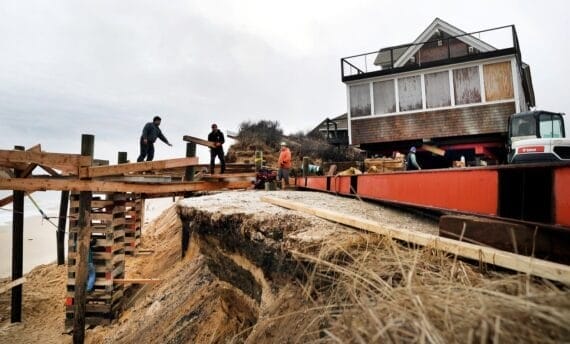
This Policy Focus Report highlights studies from from five major cities to offer actionable strategies for advancing equitable urban planning.
Announcement
The Public Land for All Communities and the Environment (PLACE) campaign examines and elevates the potential for public land to address today’s critical urban and economic challenges.
AnnouncementThe Lincoln Institute of Land Policy seeks to improve quality of life through the effective use, taxation, and stewardship of land.
Learn more about our research and cross-cutting initiatives.

Claremont Lincoln University (CLU) is an accredited, private non-profit university that offers programs integrating the research, cases, toolkits, and advanced practices of the Lincoln Institute. Through our comprehensive Lincoln Vibrant Communities initiative, our uniquely co-designed bachelor’s and master’s degrees, and our skill-packed Advanced Practice Graduate Certificates, we help leaders take the next step in their careers—empowering them to make positive change in their communities.



This issue explores how to make cities more sustainable without causing displacement, introduces a Colorado artist who draws inspiration from watershed health, and investigates how planners can use augmented reality to increase public engagement.
SubscribeDeadline: March 3, 2026 at 11:59 PM
Applications are open now for the Lincoln Vibrant Communities Teams Program—a 24-week program combining in-person education with an online curriculum designed for teams of up to six individuals tackling complex municipal challenges in their communities.
Deadline: March 3, 2026 at 11:59 PM
Applications are open now for the Lincoln Vibrant Communities Fellows Program—a 24-week program combining in-person education with an online curriculum designed for leaders tackling complex municipal challenges in their communities.
Deadline: March 2, 2026 at 6:00 PM
The Lincoln Institute’s C. Lowell Harriss Dissertation Fellowship Program assists PhD students whose research complements the institute’s interest in property valuation and taxation. Applications are due by March 2, 2026, by 6 p.m. ET.
May 11, 2026 – May 14, 2026
Online
This virtual course on May 11–14, 2026, aims to help professionals working in local government or community development better understand municipal finance so that they can make more informed decisions in their current or future careers.
Deadline: March 15, 2026 at 11:59 PM
The 2026 Lincoln Institute Scholars Program provides an opportunity for recent PhDs (one to two years post-graduate) specializing in public finance or urban economics to work with senior academics. Applications are due March 15.
March 3, 2026 – June 9, 2026
O curso aborda a Regularização Fundiária em assentamentos informais, analisando avanços e desafios jurídicos e legislativos na América Latina.
Self-Paced
Online
 This online self-paced course provides an overview of how local governments in the U.S. raise and spend money for the public services and infrastructure that are foundational to a high quality of life.
This online self-paced course provides an overview of how local governments in the U.S. raise and spend money for the public services and infrastructure that are foundational to a high quality of life.
May 18, 2026 – June 19, 2026
Online
El curso aborda la salud fiscal municipal, la cual se deriva de la armonía entre la producción de ingresos, su apropiación y su utilización para el beneficio de la comunidad.